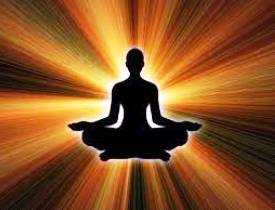Description
Course Name: Certificate in Yoga Science
Course Id: CYS/Q0101.
Eligibility: 10+2 (Higher Secondary) or equivalent is required.
Objective: The objective of the Certificate in Yoga Science course is to introduce learners to the holistic science of yoga, combining ancient wisdom with modern understanding of health and wellness. The course covers yogic philosophy, asanas, breathing techniques, meditation, and lifestyle practices based on classical yoga texts and scientific research. It is designed for students, wellness seekers, fitness professionals, and anyone interested in integrating yoga into their daily lives or careers.
Duration: Three Months.






Debit/Credit Card, Wallet, Paytm, Net Banking, UPI, or Google Pay.



• A soft copy (scanned) of your certificate via email within 7 days of examination.
• A hard copy (original with official seal and signature) sent to your address within 45 day of declaration of result.

Online Examination Detail:
Duration- 60 minutes.
No. of Questions- 30. (Multiple Choice Questions).
Maximum Marks- 100, Passing Marks- 40%.
There is no negative marking in this module.
| Marking System: | ||||||
| S.No. | No. of Questions | Marks Each Question | Total Marks | |||
| 1 | 10 | 5 | 50 | |||
| 2 | 5 | 4 | 20 | |||
| 3 | 5 | 3 | 15 | |||
| 4 | 5 | 2 | 10 | |||
| 5 | 5 | 1 | 5 | |||
| 30 | 100 | |||||
| How Students will be Graded: | ||||||
| S.No. | Marks | Grade | ||||
| 1 | 91-100 | O (Outstanding) | ||||
| 2 | 81-90 | A+ (Excellent) | ||||
| 3 | 71-80 | A (Very Good) | ||||
| 4 | 61-70 | B (Good) | ||||
| 5 | 51-60 | C (Average) | ||||
| 6 | 40-50 | P (Pass) | ||||
| 7 | 0-40 | F (Fail) | ||||







Syllabus:
Module 1: Introduction to Yoga and Yogic Philosophy: Definition and meaning of Yoga, Origin and history of Yoga, Aims and objectives of Yoga, Branches of Yoga (Raja, Karma, Bhakti, Jnana, Hatha), Introduction to Patanjali Yoga Sutras, Concept of Pancha Kosha (five sheaths), Role of Yoga in physical and mental well-being, Importance of self-discipline (Yama and Niyama), Yoga as a way of life, Misconceptions and myths about Yoga.
Module 2: Human Anatomy and Physiology Related to Yoga: Introduction to body systems, Skeletal and muscular system overview, Respiratory system and Pranayama, Circulatory system and heart health, Digestive system and Yogic diet, Nervous system and stress relief, Endocrine system and hormonal balance, Importance of flexibility and posture, Common physical limitations in Yoga, Safety precautions during Yoga practice.
Module 3: Asanas (Yoga Postures) Theory and Practice: Classification of asanas (standing, sitting, prone, supine, balancing), Benefits and contraindications of key postures, Surya Namaskar (Sun Salutation) practice, Correct alignment and body awareness, Preparatory and relaxation postures, Use of props and supports, Developing a daily practice sequence, Therapeutic applications of asanas, Breathing and awareness during asanas, Asana modifications for different levels.
Module 4: Pranayama, Mudras, and Bandhas: Definition and significance of Pranayama, Types of Pranayama (Anulom-Vilom, Kapalabhati, Bhramari, Bhastrika), Technique and benefits of each Pranayama, Mudras – meaning and categories (Hasta, Mana), Common mudras and their uses, Concept and application of Bandhas (Mula, Uddiyana, Jalandhara), Energetic effects of breath control, Sequence of breath and retention, Yogic cleansing practices (Shatkarma) introduction, Daily Pranayama routine planning.
Module 5: Meditation, Relaxation and Mental Wellness: Concept of meditation and Dharana (concentration), Techniques of meditation (breath, mantra, object-focused), Introduction to Yoga Nidra, Trataka (gazing) for mental clarity, Stress management through Yoga, Mindfulness in daily life, Role of meditation in emotional stability, Psychological effects of regular Yoga, Yoga for anxiety and depression, Guided relaxation practices.
Module 6: Yogic Lifestyle, Diet, and Professional Application: Sattvic, Rajasic, and Tamasic food concepts, Yogic diet and nutrition, Daily routine (Dinacharya) and seasonal routine (Ritucharya), Detoxification and fasting principles, Personal discipline and ethical living, Community and environmental awareness, Teaching Yoga responsibly, Building a Yoga session plan, Career paths in Yoga Science, Certification and further studies in Yoga.
After successful completion of the Certificate in Yoga Science program, graduates are equipped with both theoretical knowledge and practical skills in yogic philosophy, asanas (postures), pranayama (breathing techniques), meditation, and the physiological and therapeutic aspects of yoga. With the growing awareness of holistic health and wellness in India, there is an expanding demand for yoga professionals across health, fitness, education, tourism, and wellness sectors.
✅ Career Opportunities After Certificate in Yoga Science
🔹 1. Yoga Instructor / Trainer
-
Workplace: Yoga studios, gyms, wellness centers, schools, clubs, hotels
-
Role: Conduct yoga classes for individuals or groups, guide through asanas and breathing practices
-
Salary Range: ₹15,000 – ₹40,000/month
-
Freelance Pay: ₹300 – ₹1,000/session
🔹 2. Therapeutic Yoga Practitioner (With Experience/Advanced Study)
-
Workplace: Wellness clinics, physiotherapy centers, naturopathy hospitals
-
Role: Use yoga for management of lifestyle diseases (diabetes, hypertension, stress, etc.)
-
Salary Range: ₹20,000 – ₹50,000/month
-
(May require additional certifications in yoga therapy)
🔹 3. Yoga Teacher in Schools / Colleges
-
Workplace: Government and private schools (especially CBSE schools), universities, Navodaya Vidyalayas
-
Role: Teach yoga to students as part of physical education or co-curricular activity
-
Salary Range:
-
₹15,000 – ₹35,000/month (private schools)
-
₹35,000 – ₹50,000/month (government/contractual jobs with Yoga + B.P.Ed or equivalent)
-
🔹 4. Corporate Yoga Trainer
-
Workplace: IT companies, MNCs, banks, and coworking spaces
-
Role: Conduct stress management and wellness sessions for employees
-
Salary / Freelance Income: ₹25,000 – ₹60,000/month or ₹1,000 – ₹3,000/session
🔹 5. Freelance / Home-Based Yoga Instructor
-
Workplace: Client homes, private groups, societies, or local communities
-
Role: Conduct one-on-one or small group classes
-
Earnings: ₹15,000 – ₹50,000+/month (based on number of clients)
🔹 6. Online Yoga Coach / Content Creator
-
Workplace: YouTube, Instagram, online yoga platforms, own website
-
Role: Teach yoga online, create videos, courses, live sessions
-
Earnings: ₹20,000 – ₹1,00,000+/month (based on reach, views, students)
🔹 7. Yoga Instructor in Tourism & Wellness Retreats
-
Workplace: Resorts, spiritual retreats, hill stations, eco-tourism destinations
-
Role: Teach yoga to domestic and international guests
-
Salary Range: ₹20,000 – ₹45,000/month + accommodation and food
🔹 8. Yoga Assistant in Naturopathy / Ayurveda Hospitals
-
Workplace: Patanjali centers, Jindal Naturecure Institute, Ayurvedic hospitals
-
Role: Assist in therapeutic yoga sessions under supervision
-
Salary Range: ₹12,000 – ₹30,000/month
🔹 9. Yoga Centre Entrepreneur / Studio Owner
-
Workplace: Self-owned studio or franchise of a yoga brand (e.g., Art of Living, Patanjali)
-
Role: Conduct classes, hire staff, manage operations
-
Income Potential: ₹30,000 – ₹1,50,000+/month (depends on scale and location)
🔹 10. Yoga Coach for NGOs / Government Schemes
-
Workplace: Health awareness programs, CSR initiatives, rural outreach, AYUSH projects
-
Role: Conduct yoga camps, health awareness drives
-
Salary Range: ₹10,000 – ₹25,000/month (project-based roles)
📈 Career Growth Pathway
| Career Level | Monthly Salary Range |
|---|---|
| Entry-Level Yoga Instructor | ₹15,000 – ₹25,000 |
| Experienced Trainer / Therapist | ₹25,000 – ₹50,000 |
| School/College Yoga Teacher | ₹20,000 – ₹45,000 |
| Corporate / Online Coach | ₹25,000 – ₹70,000+ |
| Studio Owner / Entrepreneur | ₹40,000 – ₹1,50,000+ |









Reviews
There are no reviews yet.